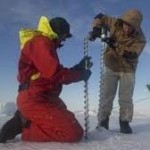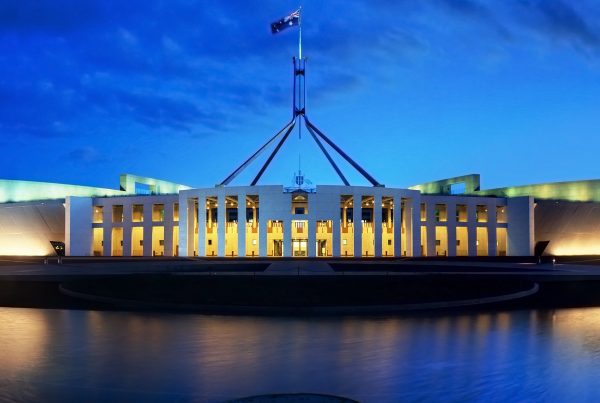How is it that politicians have helped create so much distrust in scientists on the issue of climate change, when so few of us trust politicians?
The skill of a gifted writer is to express something complex, in a simple way that the rest of us cannot. Below is a long article by Mark Latham that, in part, explains elegantly why politicians and scientists have helped turn most Australians into climate change disbelievers.
It was written in the AFR.
Climate change denial not just for fools: Mark Latham
When a politician shifts ideological positions, marching left-right-left, it is often depicted as a sign of erraticness. The university system, thankfully, has a less rigid approach. In the case of Robert Manne, Australia’s leading public intellectual, these free-thinking oscillations are viewed as a virtue. In many respects, he is an Antipodean version of John Maynard Keynes: when the evidence changes, so too does Manne’s position – hence his reputation for intellectual honesty.
Manne grew up in the shadow of the Holocaust, having lost his grandparents to the Nazi horror. This linked him instinctively to the politics of the left. After the war, however, when other young left activists were blindly defending Stalin and Mao, Manne looked to the evidence and saw evil – thus commencing his pilgrimage to the anti-communist right. Fifteen years ago he broke from this neoconservative cadre on another matter of historical record, the tragedy of the stolen generations.
Today Manne is still crusading from a left-of-centre position. Rare among Australian academics, he is willing to take a stance in the public arena and wear the opprobrium that comes from controversy. His new blog on The Monthly ’s website is true to these values. I find his work to be irresistibly rational, especially on the pre-eminent issue of our time, climate change.
Late last year Manne blogged on the question that should be troubling all intellectuals: how has the hard evidence of modern science been so thoroughly undermined that action against global warming is now an unpopular position in Australian politics? Manne calls it “the mysterious rise of climate change denialism”.
I share this concern, not from the standpoint of academia, but from talking to people where I live in south-west Sydney, a typically consumer-inclined and aspirational community. It is difficult to find anyone who believes in global warming, let alone the legitimacy of collective action against the problem. Denialism is on the rise, creating a sharp paradox in the formation of public opinion.
The longer the climate change debate has gone on, the weaker the community’s acceptance of climate change has become. This is more than just part of the political cycle, a consequence of the damage caused by Julia Gillard’s broken promise on carbon taxation and the general unpopularity of her government. It goes to the science of the issue and how scientists themselves are perceived in society.
I find that intelligent people, high-achievers in life, are just as likely to dismiss the evidence of global warming as anyone else. That is, those we most readily associate with the ideals of reason and rationality are turning their backs on the world of evidence-based research. As Manne blogged in December:
It would be comforting to believe that the denialist army is composed of fools. This is simply not the case. Many of the denialists are accomplished and educated people. It would also be comforting to think that they represent a small island of unreason in an ocean of rationality, like people opposed to immunisation. This also however is not true.
In the climate change debate, we are witnessing a puzzling shift in the foundations of public reason – the emergence of what might be thought of as anti-enlightenment. It is no longer sufficient for a large majority of scientists to compile the evidential facts of a matter and expect the public to accept them at face value. Other, more powerful influences are at work.
Understanding this process is the key to comprehending Australia’s political economy. Climate change is the most important issue facing mankind. Australia’s per capita greenhouse gas emissions are the sixth highest in the world and the highest of any OECD country. In our aspirations for international leadership and credibility, our efforts in combating global warming will always matter. In terms of both environmental reality and Australia’s place in the world, the denialist ascendancy cannot make the issue go away. Rather, it is embedding an irrational, long-running debate in our national life, much like Britain’s 19th-century Corn Laws or the resistance to female suffrage.
Manne attributes the shift in public sentiment to the mobilisation of right-wing ideology. Vested corporate interests, the Murdoch media and conservative think-tanks have combined to disparage climate science and convince the middle class there is no need to alter the carbon-fuelled material comforts of suburban life. In the choice between consumerism and environmentalism, he writes:
The denialists have played an important role. For they have been able to convince many people that to choose [materialism] is not irresponsible or immoral or insane – a choice for which future generations will curse us – but represents, rather, sweet reason and merest commonsense.
In my experience, people have not necessarily been blinded by the right. They have reached this conclusion independently of the political class. Certainly, right-wing activists have been shockingly irresponsible on the question of climate change. A truly conservative stance is to support one of the basic institutions of a stable society: the role of science in establishing the facts and rebutting extremist social theories. This means introducing measures which act as an insurance policy for the planet against global warming. The rise of right-wing denialism has betrayed this cautionary instinct.
When I talk to climate-change sceptics in my local area, it is clear their views have not been moulded by mainstream politics. In fact, if there is one thing they are more sceptical about than climate change, it is the credibility of the political system. A common pitfall in electoral analysis is to believe a majority of people absorb the same information, with the same level of intensity, as the analysts themselves.
While the political class wrestles with broadsheet newspapers each morning and watches robots mouthing the party line on 24-hour news channels, the rest of the community treats these media outlets with disdain. While inner-city coffee shops come alive in dissecting Wayne Swan’s latest essay or Germaine Greer’s latest outrage, the outer-suburban chatter concerns the practicalities of life: which schools and teachers to avoid, how to best manage a mortgage and why certain household appliances have become must-buys. Politically aware Abstract Australia is a vastly different place to the McMansionite flatlands of Aspirational Australia.
This is a useful starting point in understanding the growth of denialism. When the climate-change debate first gained a high profile in Australia five years ago, it was an abstract, feel-good issue which did not directly threaten consumption habits and living standards. A flurry of international reports and media interest exposed a problem, without linking it to a policy solution. It was easy for the public to tell pollsters and politicians they took climate change seriously, as the possibility of financial sacrifice was not yet established.
With the announcement of the Rudd government’s emissions trading scheme and the Gillard government’s carbon tax, however, attitudes hardened. The policy implications of global warming contradicted the values of a consumerist society: that the sophisticated technologies of mankind have conquered the world of nature. Once embodied in government legislation, the concept of climate change became repulsive for many people. For the first time, politicians introduced laws designed explicitly to reduce economic growth. This undermined the cultural assumptions of advanced capitalism – its unbreakable pathway to wealth creation and material comfort.
Late last year I had a lengthy chat on this subject with a businessman in my local shopping strip. I was so absorbed by his world view, I wrote down his words verbatim:
“We have airconditioning to deal with the heat of summer and the cold of winter. We shouldn’t be turning it off because of a couple of government reports. Why don’t the scientists working on climate change get together with other scientists to invent something to overcome the problem they talk about. That’s what we have always done in the past. Isn’t that what we call progress?”
This is a common view, reflecting the triumphalism of the materialistic age. As young children we are brought up to believe in the ability of mankind to invent its way out of difficulties. In terms of economic progress, this ethos readily converts itself into the mass consumerism of adult society. The current generation of Australians has little memory of any check on material progress. For many, the need for financial sacrifice to solve a public problem, let alone one as complex as global warming, is unthinkable. In this respect, the climate-change debate is a form of culture shock. The feel-good issue of 2007 has become a horror story for the ALP. As with any issue involving cost-of-living increases, governments have a narrow window of opportunity in which to effect change. For Labor, the opening closed in early 2010 when Kevin Rudd failed to take his emissions trading scheme to a double dissolution election. Now the party faces the worst of all scenarios: breaking its pledge not to introduce a carbon tax, while also having to combat a rising tide of climate-change denialism.
There is another, even more fascinating, contributor to the anti-enlightenment. It flows directly from Manne’s point about well-educated denialists in the community, citizens who access lots of information and project lots of opinions in life. When people raise this issue with me, I am struck by how many of them claim to know more about the earth’s climate than the climate-change scientists themselves. Bogged down in conversations of this kind, my first reaction was to blame it on arrogance – an urban cowboy-style disregard for evidence. But on reflection other factors are involved.
At face value, society’s small-talk about the weather is frivolous. But in the debate about global warming, it is a highly significant habit. Everyone is an expert on the weather, so why shouldn’t they have a strong opinion on climate, regardless of what the professional researchers say? This is a recurring problem for climate-change believers and lobbyists: how to separate, in the public’s mind, short-term events from long-term trends. Most people are inherently empirical, relying on the things they see around them was a way of gauging the future; the practicality of Aspirational Australia.
Weather events are commonly extrapolated into discussions about climate change, even though this is akin to using daily sharemarket bulletins as a way of comprehending Kondratiev economics (50-year patterns in the business cycle). Five years ago, at the beginning of the debate, Australia’s drought conditions were seen as synonymous with global warming. It was a simple equation: dryness equals heat. Now, with record rainfall and flooding along the east coast, this notion has lost credibility. Wetness equals coolness.
One of the unexpected consequences of mass educational attainment in the 20th century has been a loss of respect for the notion of expertise. One would have thought, with the near universality of post-secondary qualifications and the benefits of the Information Age, enlightenment would be in the ascendency. In one of the disturbing paradoxes of our time, the opposite is true. On climate change and many other issues, we have become an expert-free society.
Confident in their professional training and achievements, middle-class citizens are prepared to challenge the academic elites. Successful people in the suburbs see themselves as in-tune with the real world, while scientists are absorbed by theoretical abstractions. In the Information Age, it seems, everyone is a master of every subject they hear something about.
This phenomenon reminds me of the Isaac Asimov novels I read as a teenager: a sci-fi vision whereby society is so well educated, with so much exposure to information, that science has lost its place in the pecking order of respect.
Herein lies a trade-off between egalitarianism and expertise. I like the idea of outsiders challenging the ruling orthodoxy – the subversive benefits of a free-thinking society. But just as much, I worry about the ongoing damage to the environment from climate-change denialism. This highlights an intriguing tension for left-of-centre politics.
In so many areas, the left is being forced to deal with the byproducts of its own success – achievements within the capitalist system that have generated knock-on problems.
At the beginning of the Industrial Revolution, there were two great socialist goals: widespread economic ownership and universal education. The first has produced a highly materialistic society (undermining traditional left-wing values of compassion and collectivism), while the second has, perversely enough, encouraged anti-enlightenment on climate change.
The challenge for progressive politics is to develop a post-left future that addresses the contradictions of left success. Manne’s journey left-right-left has shown how the smartest of people can move with the times, adapting to new evidence. He and his colleagues, the best of the progressive intelligentsia, have a mountain of work to do. The failure of the left to win the climate-change debate should be the catalyst for a post-left movement, abandoning the moribund assumptions of green-left politics and starting this ideological project afresh.
Mark Latham is a former federal Labor leader.
The Australian Financial Review





